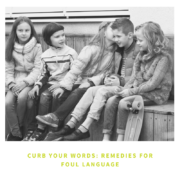Say Goodbye to the Summer Slide: Fun and Effective Strategies to Keep Kids Learning
Are you ready to make this summer a season of learning and fun for your kids? Say goodbye to the summer slide—a term that describes the loss of academic skills over the summer break—and hello to engaging activities that will keep your children sharp and ready for the next school year!
The summer slide is a real concern for educators and parents, especially for students from lower socioeconomic backgrounds who may not have access to educational resources during the break. But don’t worry; with the right approach, you can turn summer learning into an exciting adventure for your kids!
Here are some fun and effective strategies to keep your kids learning all summer long:
- Student Choice: Let your children choose what they want to read or learn about. Whether it’s fiction or nonfiction, giving them a say in their learning will increase their motivation and engagement.
- Various Modes of Texts: Don’t limit learning to just books. Consider audiobooks, ebooks, graphic novels, and magazines to cater to different interests and reading levels.
- Curriculum-based Activities: Check with your child’s school or teacher for materials that align with the previous year’s curriculum. This can include books, activities, or projects that reinforce what they’ve learned.
- Family Involvement: Start a weekly family book club where everyone reads and discusses a chosen book. Make it fun with snacks, cozy blankets, and maybe even a movie night based on the book!
- Real-life Connections: Connect reading material to your child’s interests or experiences. If they’re going to soccer camp, find books about soccer or soccer players. This makes learning more relevant and engaging.
By incorporating these strategies into your summer routine, you can help your children combat the summer slide while having a blast! So, grab some books, gather the family, and let the summer learning begin!





